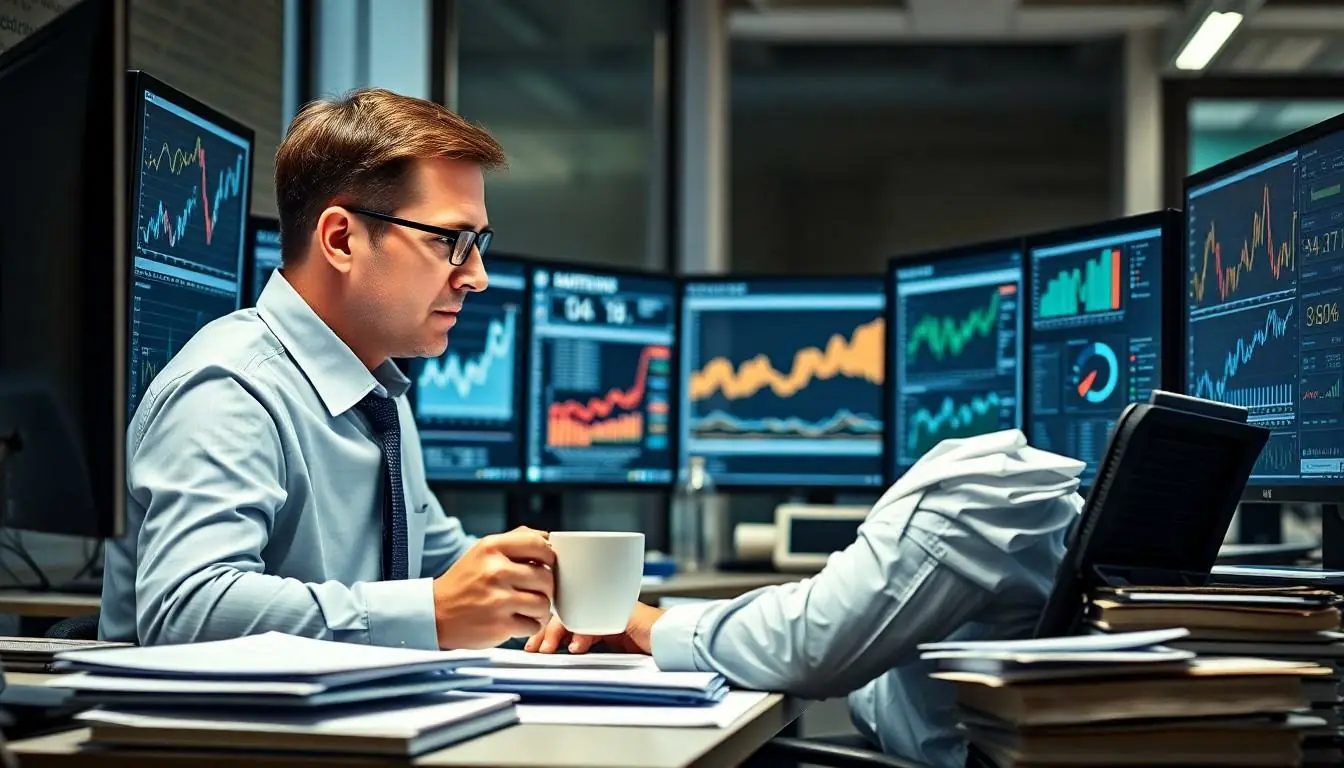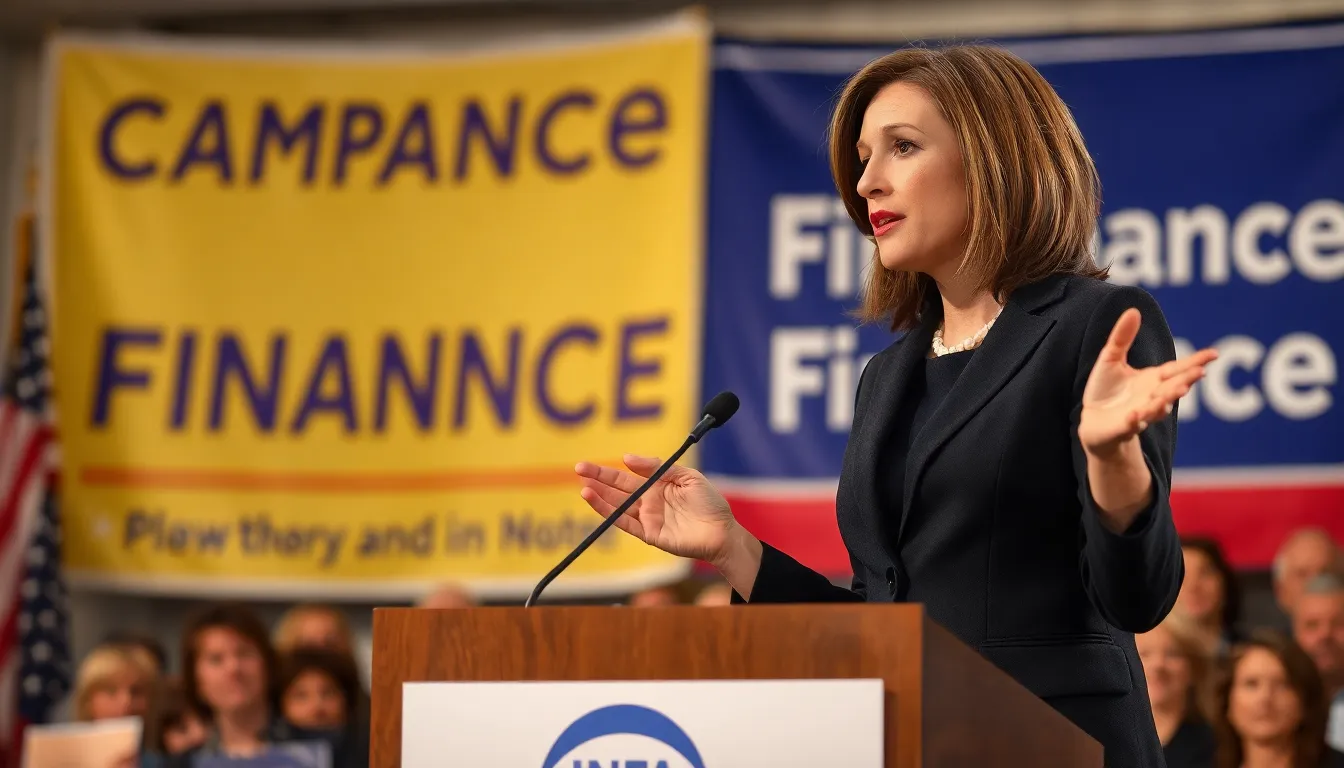Ever wondered who’s behind those insightful political predictions and snappy commentary? Meet the political analyst—the unsung hero of the political landscape. They’re the folks who sift through mountains of data, decode complex policies, and make sense of the chaos that is politics, all while keeping their coffee intake at alarming levels.
Table of Contents
ToggleOverview Of Political Analysts
Political analysts play a crucial role in understanding and interpreting political events. They gather and assess data from various sources, including polling information, public opinion, and legislative developments. This analysis shapes their insights on current political trends and future implications.
They specialize in breaking down complex policies to identify potential impacts on society, making policy recommendations clear and accessible. Political analysts often create reports and deliver presentations, ensuring their findings reach a broader audience.
Collaboration is key in this field. Political analysts frequently work with government agencies, think tanks, and media organizations. Their expertise helps drive informed discussions in political debates and public forums.
Research skills are essential for political analysts. They stay updated on global political climates, which requires continuous learning and adaptation. Experts regularly utilize statistical tools and methodologies to analyze trends effectively.
Additionally, understanding the interplay between various factors is vital. Economic conditions, social movements, and technological advancements all shape political landscapes. Political analysts connect these elements to provide comprehensive assessments.
To convey their findings, many analysts engage with the public through social media and published articles. This outreach ensures their research informs everyday citizens about critical political developments.
Roles And Responsibilities
Political analysts fulfill various critical functions in the political landscape. Their work involves extensive research and collaboration to provide quality insights.
Research And Data Analysis
Analysts gather data from numerous sources, including public opinion polls, election results, and political events. They utilize statistical tools to identify patterns and trends within this information. Understanding complex data sets is crucial for drawing accurate conclusions. Staying updated on global political climates allows analysts to contextualize their findings effectively. Moreover, they synthesize vast amounts of information into digestible formats for public consumption.
Policy Evaluation
Evaluating policies involves assessing the implications of legislative measures and political movements. Analysts critically examine the potential effects of policies on various demographics. This evaluation often includes analyzing economic impact, social consequences, and public reception. Providing recommendations based on evidence ensures that decision-makers consider informed perspectives. Analysts identify strengths and weaknesses in proposed policies, facilitating constructive discourse.
Communication And Reporting
Effective communication is essential for analysts to relay their findings to various audiences. They produce reports, articles, and presentations to share insights with government agencies, think tanks, and the media. Engaging with the public via social media enhances visibility and encourages informed discussions. Clear reporting helps bridge the gap between complex political ideas and everyday understanding. Through various communication channels, analysts play a vital role in shaping political debates and informing citizens.
Skills Required
Political analysts require a diverse set of skills to navigate the complexities of their field effectively. Essential abilities include analytical skills, communication skills, and a solid understanding of political systems.
Analytical Skills
Analytical skills stand at the core of a political analyst’s expertise. They interpret large data sets, identifying trends and patterns that influence political landscapes. Proficiency in statistical software facilitates their ability to conduct meaningful analysis. Analysts synthesize complex information into understandable conclusions. Problem-solving skills enable them to address questions regarding policy impacts and electoral outcomes. Such abilities allow analysts to discern subtle shifts in public sentiment.
Communication Skills
Communication skills play a pivotal role in a political analyst’s work. Analysts must convey intricate concepts clearly to diverse audiences, including policymakers, academics, and the general public. Written reports should be articulate, presenting findings in a structured manner. Verbal communication remains equally important when delivering presentations or participating in discussions. Engaging with media outlets enhances their ability to reach a wider audience and influence public discourse. Tailoring messages for different platforms ensures effectiveness in delivering insights.
Understanding Political Systems
Understanding political systems is fundamental for effective analysis. Analysts must grasp the inner workings of government structures, political parties, and electoral processes. Familiarity with historical context enriches their analysis of current events. Knowledge of international relations adds depth to their evaluations of global political dynamics. This comprehensive understanding allows analysts to assess how policies interact within different systems. Analysts navigate the implications of various political ideologies effectively.
Career Pathways
Political analysts pursue diverse career pathways, often shaped by their education and skills. Understanding the necessary qualifications and job opportunities enhances insights into their professional journey.
Education And Qualifications
A bachelor’s degree in political science, international relations, or a related field serves as a fundamental requirement. Many analysts enhance their credentials with a master’s degree or specialized certifications, which can deepen their expertise in data analysis or public policy. Coursework in statistics, research methods, and communication strengthens their analytical and presentation abilities. Internships with governmental agencies, political organizations, or research institutions provide practical experience, making candidates more competitive.
Job Opportunities
Political analysts can explore various roles across sectors. Opportunities exist in government agencies, where they inform policy decisions and assess legislation. Non-profit organizations utilize analysts to influence public policy and advocacy efforts. Additionally, private sector roles in consulting firms and media organizations enable analysts to contribute insights on political trends. Academic positions also attract those who wish to teach and research political dynamics. Job growth in this field reflects the increasing need for data-driven political analysis.
Political analysts play an essential role in shaping the understanding of the political landscape. Through their expertise in data analysis and policy evaluation, they provide valuable insights that drive informed decision-making. Their ability to communicate complex ideas clearly ensures that critical information reaches a broad audience, fostering public engagement in political discourse.
As the demand for data-driven analysis continues to rise, the future looks promising for those pursuing a career in this field. With the right education and skill set, aspiring political analysts can contribute significantly to the ongoing conversations that influence society and governance.



